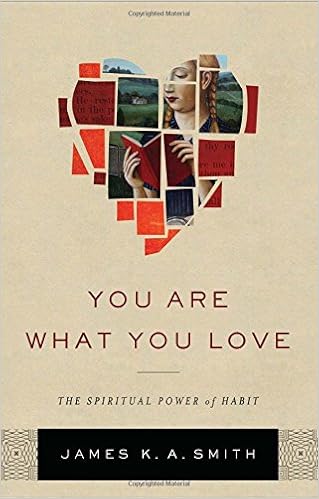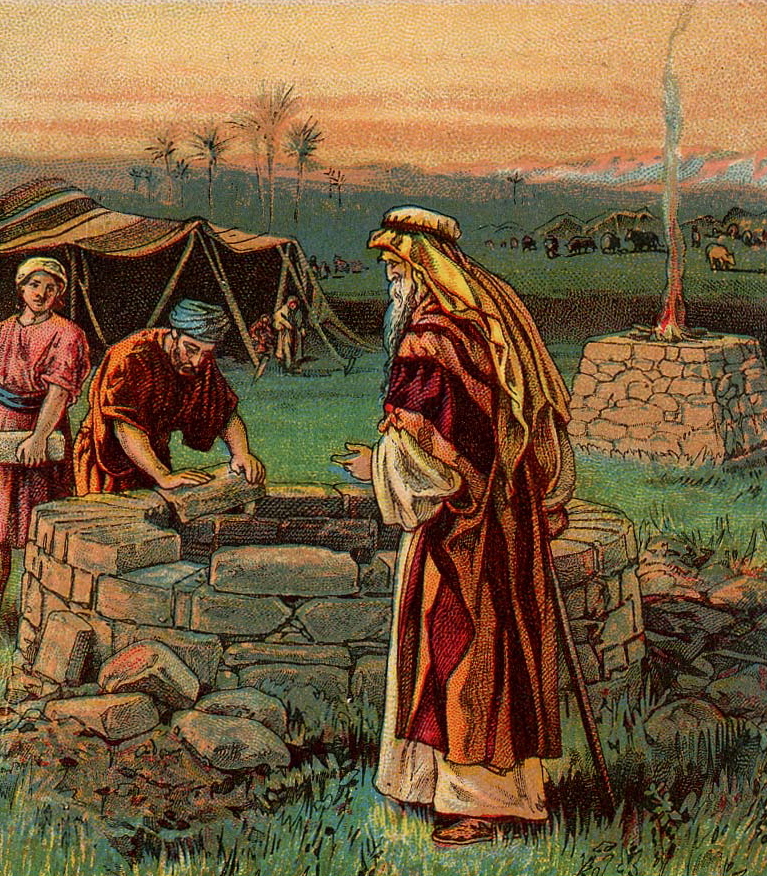I really enjoyed Elder H. Burke Peterson’s talk, Harmony in the Home. It’s another one of those talks that makes you realize that there’s nothing recent about the Church’s emphasis on family: “In countless writings the prophets of the Lord have been trying to teach us that throughout time and all eternity the most important organization is the family.” That alone is a talk that makes it interesting to me, but what stood out to me in this particular talk was the relationship between Christ and family.
That’s something that’s not always obviously apparent. To some extent, it seems that the Church’s emphasis on family is separate from and might even detract from a focus on Christ. I happen to be reading a draft of my father’s next book,[ref]Sorry, no spoilers.[/ref] and those three topics (church, Christ, family) are central to his first chapter.[ref]Maybe the whole book, but I’m still in the first chapter.[/ref] And I saw a lot of the same themes in Elder Peterson’s talk.
First, it strikes me that “the Lord” comes before “family” in that snippet I quoted. It seems like such a small thing, but it really matters. Where does the emphasis on family come from? It comes from “prophets of the Lord.” The message is from Him. This kind of connection between the family (or the home) and the Lord ran throughout the talk, for example: “The home should be the great workshop of the Lord. Here is where children must be taught to walk in ways of truth and soberness, of love and service to each other.” Or also: “The gospel of Jesus Christ is more easily taught and longer remembered in a happy home.”
But here–and this is my second point–is the paragraph that struck me the most from this whole talk[ref]I’m patching together two quotes that are kind of far apart in the original[/ref]:
May I suggest that as parents we must require more of ourselves. May I suggest that we give more of ourselves, that we give more good experiences to our children, experiences that are love-producing and family-solidifying…What if you decided to be cheerful tonight at the dinner table, and in spite of what others might do or say, hold to your course. See how long you can uplift your whole family.
On the one hand, this could be read as such a banal little passage. “Be cheerful!” What could be more simplistic or, a cynic might argue, shallower? But I really love this idea at the end, “see how long you can uplift your whole family.” Because here are two great realities of Mormonism within this talk. The first is that little, everyday things matter. We’re used to seeing talks about controversial moral issues, but Elder Peterson’s focus was simpler:
One of Satan’s most effective tools is at work among us today—it is a destroyer of happiness, peace, contentment, family solidarity. Families are stumbling and falling because of its hobbling and crippling effect. This tool of Satan is called contention.
In other words: don’t argue. Be kind. Be nice. How simple! And yet, if you practice it in your everyday life, how profound the impact. Kindness matters. And if kindness really matters, than sacrificing yourself–your time, your energy, your priorities, your pride–to try and bring more happiness to your home is not banal. It’s truly following the example of the Savior. Not in a dramatic way, but in a true way. Giving that last ounce of energy when your day is long, your kids’ questions are irritating, and the to-do list seems never-ending is hard. You want to hold something back. You want to keep something in reserve. You want to give less than everything. But when you summon the courage and the love to go beyond what you thought you could do, even if it’s something as simple as putting aside your expectations or plans to just be with your kids, well… you’re being a savior in your home. You’re following Him.
It’s true that the Church’s emphasis on family goes way back. And it turns out there’s a reason for that. Home really ought to be the workshop of the Lord.
—
Check out the other posts from the General Conference Odyssey this week and join our Facebook group to follow along!
- A Home Where Mission is Part of Life by G
- Satan’s Effort to Influence and Control the Human Mind by Daniel Ortner
- Abomination and Understanding, Works and Grace by Ralph Hancock
- Zombies, Mormons, and Ants by Jan Tolman
- We are the catalyst by Marilyn Nielson




 Having confessed all that, my appreciation for these monotonous and seemingly pointless activities have slowly grown over the last couple years. It’s been especially heightened over the last week as I’ve been reading through James K.A. Smith’s
Having confessed all that, my appreciation for these monotonous and seemingly pointless activities have slowly grown over the last couple years. It’s been especially heightened over the last week as I’ve been reading through James K.A. Smith’s 


